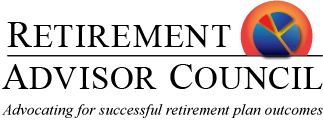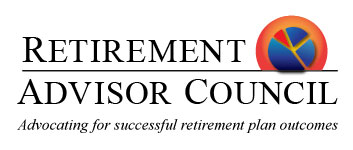 This nation's financial literacy statistics are startling, as are the consequences.
This nation's financial literacy statistics are startling, as are the consequences.
- The U.S. ranked 27th of 28 countries for this question in the 2012 Global Financial Literacy Barometer: "To what extent would you say teenagers and young adults in your country are adequately prepared to manage their own money?"
- Seven in ten respondents to the survey believe that U.S. teens don't understand money management basics.
- Three-quarters of teens believe the best time to learn about money management is in kindergarten through high school. But only three in ten say programs are currently in place.
- At this point, only one-third of states - 17 states to be exact have a form of mandatory financial literacy K-12 education
This is all stark evidence that we desperately need more comprehensive and mandatory financial literacy. Teenagers and young adults need to learn basic financial literacy skills, including saving, budgeting, and credit management, so they can take on the many financial challenges that await them.
So, what's the answer? While workplace education on money management and retirement planning are important, so much more needs to be done at an earlier age. We need to educate our young people BEFORE they enter the workforce –– before they're earning and managing (or mismanaging) their money. We have to do a thorough job of equipping high school students with practical financial life skills.
Fortunately, vital financial education is being shared through several popular programs targeted at our youth. These include:
Boys & Girls Club: This service organization has a "Money Matter$" program for 13 – 18 year olds. Teens learn financial responsibility and independence by learning how to manage a checking account, balance a budget, save and invest, start a small business and pay for college. Money Matters
Junior Achievement: This national organization is a leader in promoting workforce readiness, entrepreneurship and financial literacy through hands-on programs. JA Personal Finance
Jump$tart Coalition for Personal Financial Literacy: This national non-profit coalition seeks to educate and prepare U.S. youth for life-long financial success. Jump$tart
Make a Difference Wisconsin: This statewide program provides financial literacy programs and resources that empower children to make sound financial decisions. www.makeadifferencewisconsin.org
Credit for Life: This intense, practical program of Boston College High School has received rave reviews. In a single day fair, hundreds of students receive in-depth exposure to financial literacy with a focus on budgeting and saving through 401(k) plans. Credit for Life
For that one day, each high school senior gets to choose an occupation. Then, based on official Bureau of Labor Statistics data, they each receive an annual income and are assigned a certain amount of student debt and a random credit score. With that information and the resultant opportunities and restrictions, they make real-life types of decisions about their retirement plan, loan payments and the costs and merits of buying every-day items.
For example, students have to weigh choices of apartment rentals, car purchase, insurance, utilities, cell phone plans and how much they're able to set aside and save in their simulated monthly budgets. There's even a reality-check station where, like a game of Monopoly, they might get a Fortune card that says: "Speeding ticket – $150" or "You've inherited $500." So, it's educational and fun. And like life, it can be unpredictable.
Throughout the day, students learn the basics of financial management through a series of quick, 15-minute workshops, including a 401(k) information session. That drives home the message that all workers are responsible for their own retirement, and starting sooner can make a big difference.
At Boston College High School last year, the level of engagement among seniors was very high. They actively sought help, asking plenty of follow-up questions to program advisors. The retirement saving and investing booth was among the most popular.
Make Financial Literacy Mandatory
These are wonderful programs. We're moving in the right direction. But we need more. We need mandatory financial literacy as part of the high school curriculum. Let's push to triple the number of states that require it, from the current 16. If students in Ohio and New Jersey must be financially knowledgeable when they graduate from high school, why should students in Wisconsin and New York State, for example, be denied that vital skill?
We all know about the sorry state of financial preparedness in our society and our workforce. Too few people are successfully managing their monthly budgets and financial future. Let's do something meaningful and far-reaching. Let's make financial literacy mandatory.
What can YOU do about it?
First, find out if local schools are doing anything like this. If not, find out who could be a good resource to help set one up.
Second, volunteer to help plan such an event and to make financial presentations that will help equip today's students for a lifetime of financial success. Ask your financial advisor how s/he will support the event.
Third, contact your state officials, particularly the secretary of education, to push to make financial literacy a mandatory requirement within the high school curriculum.
Financial literacy: We can all pay it forward. Let's start today.
Contributors: Tom Hoffman - Sharon Schmid - Jason Chepenik Financial Literacy Committee







































